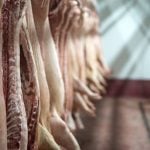Saudi investors launched agricultural projects in Indonesia worth $1.3 billion last year, a top business official said March 23, as the world’s top oil exporter seeks to secure food supplies from abroad.
Mohamed Abdulkader al-Fadel, who chairs Saudi Arabia’s Commerce and Industry Chambers Council, made the remarks during a meeting with Indonesia’s ambassador, state news agency SPA reported.
Alwi Shihab, the Indonesian president’s special envoy to the Middle East, said last week the Asian archipelago would allocate at least two million hectares (4.94 million acres) of farmland to joint ventures with Saudi investors to be used mainly to cultivate rice.
Read Also

Manitoba launches CWD tracking tool
A newly launched digital dashboard allows hunters to track where chronic wasting disease has been confirmed in Manitoba
The move would turn Indonesia into the world’s top rice exporter in 2009, Shihab said.
Saudi BinLadin Group plans to invest at least $4.3 billion in Indonesia’s rice-farming sector on 500,000 hectares of land in the Papua province, Shihab said last year.
Indonesia is among countries prospected by Saudi investors under a government-sponsored push for agricultural investment outside the kingdom to secure food supplies. The countries also include Sudan, Ethiopia, Egypt, the Philippines and Turkey.
Under the plan, Saudi Arabia would import a “reasonable amount” of commodities, provide support for those investments and sign bilateral agreements with relevant governments, the government said.
A food security panel, affiliated to Riyadh’s Chamber of Commerce and Industry, has identified wheat, barley, corn, soybean, maize, rice and sugar among strategic crops that should constitute priorities for foreign investments.














